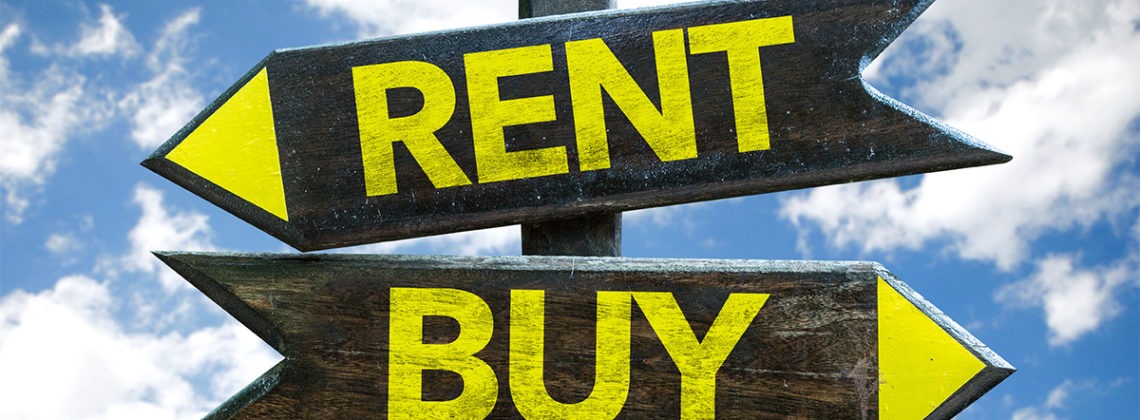
Buying a home is one of the biggest decisions you can make. It affects your financial health – it changes the way you live your life and how you spend your money. Owning real estate has its advantages, of course. Real property builds equity and is a great source of tax deductions, but is it the right time for you to hand over your freedom and flexibility for the responsibility of homeownership? It’s a thought most of us will ponder at some point. Buy vs. rent: Know the Benefits of Each.
Thoughts on Renting
It’s a misconception to believe that as a renter you are throwing your money away. Renting provides housing, and you need a place to live. True, you will not build equity paying rent, but there are some benefits to renting:
- Your budget can be easily set by knowing exactly what your housing costs will be each month. Homeownership brings with it many unexpected repairs or improvements you may not plan for.
- As a renter, you are free to move out when your lease expires and not be burdened with having to sell a property if you choose to relocate. Owning real estate when you want to move can be an expensive process, and not always a financially sound one if the housing market is down.
- Home repairs are not your responsibility, and many repairs can be extremely costly. This includes roof repair or replacement, plumbing, electrical, and flooring upgrades. These types of repairs can run homeowners thousands of dollars, and sometimes these are unexpected out-of-pocket expenses.
- Owning a home does not guarantee that your property will always increase in value. As a homeowner, your property value can be dependent upon whether your neighborhood declines in its desirability to own. Also, a town’s major employer may shut down or move resulting in a population decline and a housing surplus.
Selling Suburbia to Millennials
Thoughts on Owning
- Beginning with qualities we could call “intangible”, homeownership brings with it a sense of pride, community, and responsibility to that community.
- The benefits of investing in a home include appreciation, home equity, tax deductions, and deductible expenses. According to Investopedia “One thing to keep in mind, is that the length of time you have your home is a big factor in how much equity you build and the appreciation you can realize. The longer you keep it, the more equity you obtain.”
- A fixed-rate mortgage will provide you with predictable monthly payments that will not increase. However, your property taxes and insurance premiums most likely will.
- When housing prices go up, homeowners can make large gains, although the reverse is true as well.
- A home is the opposite of a liquid investment, but it is one of the best long-term investments you can make. Residential real estate generally tends to rise in value, and at the same time, provides a roof over your head.
- Be prepared to spend much of your free time working on your home. This may include home repairs or yard work – but it is a real factor for consideration. Ask any homeowner! As a homeowner, here are some expenses you should be prepared to pay that a renter does not have to consider:
- Property Taxes
- Trash, water, and sewer fees
- Maintenance of your home, as well as any repairs needed
- Outdoor maintenance such as pool cleaning, pest control, and yard maintenance
- Homeowner’s insurance, and in some areas specialized insurance such as earthquake and flood
Just remember that buying a home can be a great investment, but it also comes with risks. Most of us have been bombarded all our lives with the idea that homeownership is the key to happiness, and the ultimate American Dream. Just know it’s important to research the pros and cons of both scenarios.
